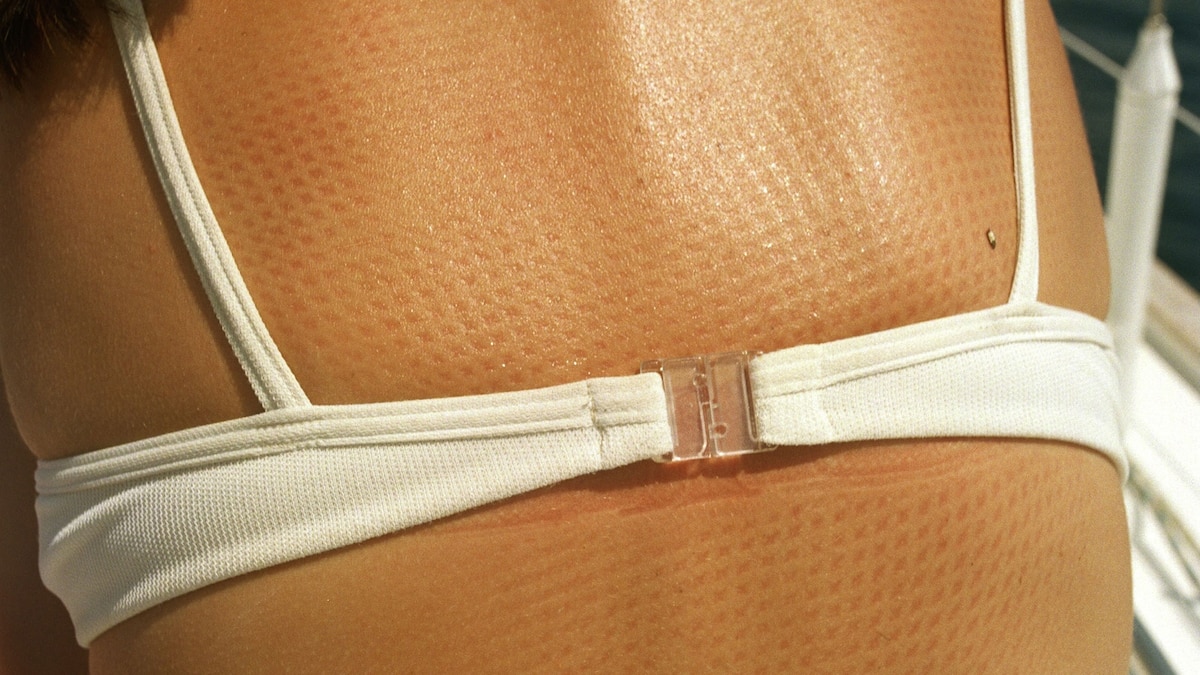Third-year Harvard medical student and study author Natalie Baker has also seen how heat affects skin conditions in Boston clinics during unusually hot summers. One patient with cutaneous T-cell lymphoma, a type of cancer that can cause rashes and scaly skin, told Baker in her clinic visits the itching was “absolutely unbearable” during the summer.
Patients suffering from hidradenitis suppurativa, a condition that causes painful abscesses on the skin, also reported more severe symptoms during periods of heat and humidity which creates a breeding ground for bacteria and can cause skin irritation as the abscesses create friction against clothing. “I have patients in the clinic who say, ‘I’m on the edge of my seat all summer just waiting for myself to flare again,’” says Baker.
TIP: Keep cool and hydrated. Dermatologists recommend staying as cool as possible to prevent exacerbating these skin issues. When outside during heat waves, broad-brimmed hats, long-sleeved Ultraviolet Protection Factor (UPF) shirts, and staying in the shade when possible both keep the body cool and protect the skin from sun damage. Dehydration from fluid loss through sweating can also make the skin drier and more irritated, so staying hydrated is key.
How air pollution and wildfire smoke damage the skin
As climate change makes wildfires more frequent and intense, the air quality effects are far-reaching, just like the flaky white debris Wei saw in California seven years ago.
“Many, if not all, inflammatory diseases will be affected by air pollution including wildfire smoke,” says Wei. When wildfires burn they release pollutants like fine particulate matter which can trigger oxidative stress, damaging the skin. Since the skin’s barrier function is already impaired in eczema patients, air pollution is more easily able to enter the pores of the skin and cause irritation. In psoriasis patients, air pollution causes an inflammatory response, where the body’s immune system releases inflammatory chemicals into the bloodstream that trigger a skin flare-up, says Wei.
